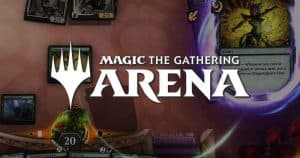Magic: The Gathering (MTG), created by Richard Garfield and first released in 1993 by Wizards of the Coast, stands as the most popular trading card game (TCG) globally. With over 35 million players worldwide as of 2023, MTG continues to captivate audiences with its rich lore, strategic depth, and vibrant community.
MTG The World’s Most Popular Trading Card Game

Gameplay Mechanics: Depth and Strategy
At its core, Magic: The Gathering is a game of strategy where players assume the role of powerful wizards known as Planeswalkers. Players build decks from a vast pool of over 20,000 unique cards, each representing spells, creatures, and artifacts. The game’s mechanics emphasize resource management, tactical decision-making, and adaptability. Formats like Commander, Standard, and Modern offer diverse playstyles, catering to both casual enthusiasts and competitive players.
Global Reach and Cultural Impact
Magic: The Gathering’s influence extends beyond the gaming table. The game’s deep lore has inspired novels, comics, and digital media, enriching its universe. Collaborations with franchises like The Lord of the Rings and Doctor Who have introduced MTG to new audiences, blending beloved narratives with its gameplay. These cross-promotions have revitalized interest and attracted diverse player demographics.
Competitive Scene and Esports
The competitive aspect of Magic: The Gathering is robust, with tournaments held worldwide, culminating in the Mythic Championship and World Championship events. These competitions showcase the game’s strategic depth and the skill of its players. Online platforms like MTG Arena have further democratized access to competitive play, allowing players to engage in tournaments from the comfort of their homes.
Economic Impact and Market Presence
MTG has proven to be a lucrative venture for Wizards of the Coast. In 2022, the game generated over $1 billion in revenue, underscoring its commercial success. The secondary market for MTG cards is thriving, with rare and vintage cards fetching significant sums. Platforms like TCGPlayer and Card Kingdom report record sales, reflecting the game’s enduring popularity and financial impact.
Digital Evolution: MTG Arena

Recognizing the digital shift in gaming, Wizards of the Coast launched MTG Arena, a free-to-play online platform that brings the MTG experience to digital devices. MTG Arena offers various formats, regular updates, and seasonal events, maintaining the game’s relevance in the digital age. The platform has attracted a new generation of players, ensuring MTG’s continued growth and accessibility.
Educational Value
Beyond entertainment, MTG offers educational benefits. The game enhances skills such as critical thinking, mathematics, and strategic planning. Many educators incorporate MTG into classroom settings to teach these concepts in an engaging manner. Additionally, the game’s emphasis on reading and comprehension aids in literacy development, making it a valuable tool for learning.
Community and Social Interaction
MTG fosters a vibrant community where players connect through local game stores, online forums, and social media platforms. Events like Friday Night Magic provide regular opportunities for players to meet, compete, and share their passion for the game. The game’s inclusive nature ensures that players of all backgrounds can find a welcoming environment to enjoy the game.
Replayability and Expansions
One of MTG’s strengths is its replayability. Regularly released expansion sets introduce new mechanics, themes, and cards, keeping the gameplay experience fresh and exciting. These expansions often tie into the game’s lore, offering players new narratives to explore. The constant evolution of the game ensures that no two sessions are alike, maintaining player engagement over time.
Accessibility and Inclusiveness
Wizards of the Coast has made strides in making Magic: The Gathering more accessible. Initiatives like the “Welcome Decks” and “Jumpstart” sets are designed to ease new players into the game. Additionally, the company has focused on increasing diversity and representation within the game’s artwork and narratives, ensuring that all players feel seen and valued.
Future Prospects
The future of Magic: The Gathering looks promising. With continued support for both physical and digital platforms, the game is poised to expand its reach even further. Innovations like augmented reality features and integration with other digital platforms may offer new ways for players to experience the game. As MTG celebrates its 30th anniversary, its legacy as the most popular trading card game remains secure.
Magic: The Gathering has a blend of strategic depth, rich lore, and vibrant community has solidified its position as the most popular trading card game in the world. Its ability to adapt to digital platforms, maintain a thriving competitive scene, and foster an inclusive environment ensures its continued relevance and appeal for years to come. Whether you’re a seasoned Planeswalker or a newcomer, MTG offers a dynamic and engaging experience that stands the test of time.
Be sure to visit Total Apex Gaming for more game-related news and content.
More must-reads:
- 10 players from the NFC North who have the most to prove in 2025
- Justin Fields, former college teammate showcase renewed chemistry vs. Steelers
- The 'College football FBS nicknames' quiz
Customize Your Newsletter
 +
+
Get the latest news and rumors, customized to your favorite sports and teams. Emailed daily. Always free!








